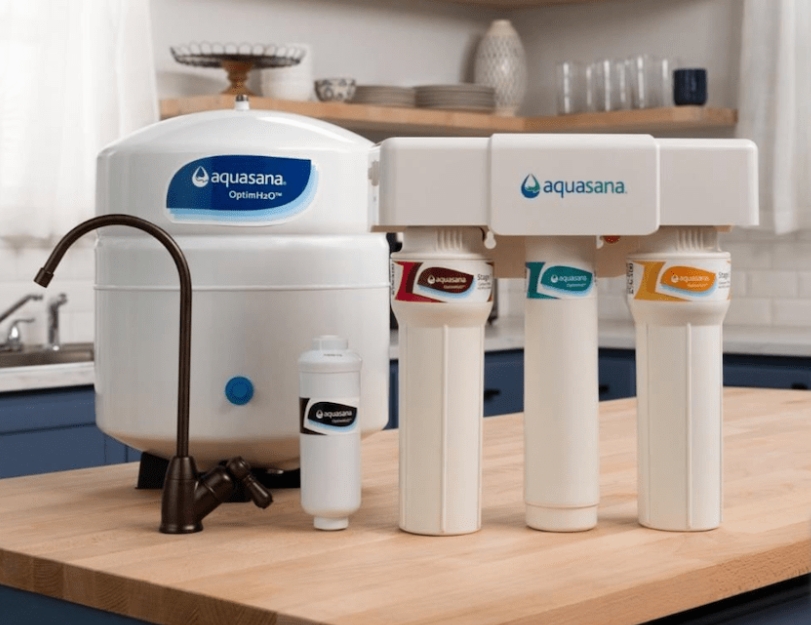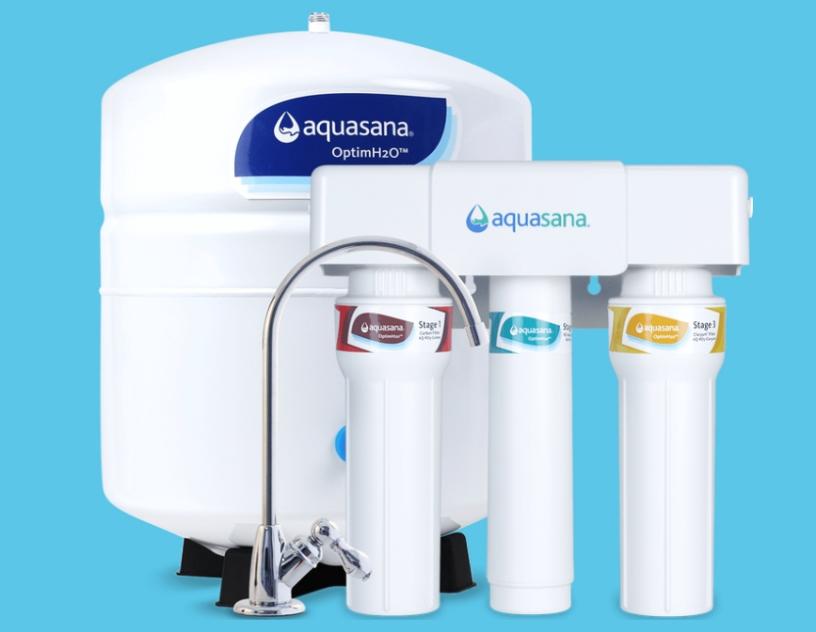Clean drinking water is vital for maintaining good health and well-being. A water purifier serves as an essential tool to ensure that the water you drink is free from harmful contaminants. With pollutants such as bacteria, viruses, chemicals, and heavy metals being a constant threat, using a purifier can make a significant difference in the quality of water consumed. This guide explores what is a water purifier, how it works, and the different types available. We will also discuss the numerous benefits they bring, including better health, cost savings, and improved water quality. By the end, you’ll have a comprehensive understanding of how a water purifier can benefit you and your family.

What Is a Water Purifier and How Does It Work?
A water purifier is an appliance designed to remove contaminants from water, making it safe for drinking and other uses. These systems utilize various filtration methods to tackle different types of pollutants present in the water. Most water purifiers work by passing water through multiple filtration stages, each aimed at eliminating specific impurities. For example, sediment filters capture large particles like dirt and rust, while activated carbon filters remove chlorine, bad odors, and chemicals. Reverse Osmosis (RO) uses a semi-permeable membrane to eliminate dissolved salts, heavy metals, and viruses. Ultraviolet (UV) purifiers harness light to kill bacteria and other microorganisms, and Ultrafiltration (UF) uses hollow fibers to trap harmful pathogens. Together, these methods ensure that the water is free from impurities and safe for consumption.
Types of Water Purifiers: Which One Suits Your Needs?
RO (Reverse Osmosis) Water Purifiers
RO water purifiers are highly effective in areas where the water contains high levels of dissolved salts, heavy metals, or other impurities. They use a semi-permeable membrane to filter out up to 99% of contaminants, including salts, metals, and other harmful substances. Water is forced through the membrane, leaving larger particles behind. While RO purifiers provide superior filtration, they have some drawbacks. They remove not only harmful contaminants but also essential minerals such as calcium and magnesium. To counteract this, some RO systems come with a remineralization stage to add back these important minerals. Another factor to consider is that RO systems can waste a significant amount of water during the filtration process, requiring regular maintenance to ensure efficiency.
UV (Ultraviolet) Water Purifiers
UV water purifiers are effective at disinfecting water by eliminating harmful microorganisms like bacteria, viruses, and protozoa. These purifiers use ultraviolet light to penetrate the cells of pathogens, disrupting their DNA and rendering them harmless. One of the biggest advantages of UV purifiers is that they don’t use chemicals, making them an environmentally friendly option. However, UV systems are most effective when the water is relatively clear, as high turbidity (cloudiness) can block the UV light and reduce its effectiveness. UV purifiers are typically low-maintenance and don’t alter the taste of the water, making them an ideal solution for households that need to disinfect water without changing its flavor or composition.
UF (Ultrafiltration) Water Purifiers
UF water purifiers use a hollow fiber membrane to filter out bacteria, cysts, and other harmful microorganisms, providing biologically safe drinking water. Unlike RO purifiers, UF systems do not remove dissolved salts and chemicals, making them ideal for areas where the water quality is already good but may contain biological contaminants. The process is simple and doesn’t require electricity, which makes UF purifiers a practical option in regions with unreliable power supplies. They are easy to maintain and require minimal intervention, making them a cost-effective solution for households looking to improve water quality without complicated setups. However, UF systems are not suitable for heavily contaminated water, as they do not remove chemicals or heavy metals.
Activated Carbon Water Purifiers
Activated carbon water purifiers are highly effective at removing chlorine, organic compounds, pesticides, and other chemicals that affect the taste and odor of water. Activated carbon filters work by adsorbing contaminants onto the surface of the carbon, improving the taste and smell of water. These systems are often used in conjunction with other purification methods, such as UV or UF, to enhance overall effectiveness. While they excel at removing chlorine and improving water flavor, activated carbon filters are not effective at removing dissolved minerals, salts, or bacteria. As a result, they are most suitable for areas with low to moderate levels of contamination. They are easy to maintain and relatively inexpensive, making them a popular choice for households.
Gravity-Based Water Purifiers
Gravity-based water purifiers are a simple and effective solution for purifying water without the need for electricity. These purifiers typically use gravity to pull water through multiple stages of filtration, such as sediment filters, activated carbon, and sometimes UF membranes. They are ideal for areas with lower contamination levels or where electricity is not available. While they may not be as effective at removing dissolved salts or very fine particles, gravity-based purifiers are inexpensive and easy to use. They offer a practical solution for households that require basic filtration without relying on power sources. These purifiers are low-maintenance and easy to set up, making them a suitable option for rural or off-grid locations.
What Are the Key Benefits of Using a Water Purifier?
Health Benefits of Clean Water
Clean water is essential for maintaining good health, as it helps prevent a wide range of waterborne diseases such as cholera, dysentery, and typhoid. A water purifier effectively removes harmful bacteria, viruses, chemicals, and toxins that can negatively impact your health. Regular access to purified water boosts your immune system and promotes overall well-being by reducing the risk of infections. Clean water also supports healthy skin, proper digestion, and hydration, making it vital for your body's daily functions. By using a purifier, you ensure that the water you drink is free from harmful contaminants, keeping you and your family safe from potential health threats.

Cost Savings and Environmental Impact
Investing in a water purifier offers long-term cost savings by reducing the need for bottled water. Bottled water can be expensive, especially if you need it on a daily basis. By using a purifier, you eliminate the need for purchasing bottled water, saving you money over time. Additionally, water purifiers help reduce plastic waste, which is a significant environmental concern. The production, transport, and disposal of plastic bottles contribute to pollution and waste. With a water purifier, you minimize your carbon footprint and help protect the environment. Reducing plastic waste not only benefits your wallet but also contributes to a more sustainable, eco-friendly lifestyle.
Enhanced Taste and Quality of Drinking Water
Water purifiers significantly improve the taste of your drinking water by removing chlorine, sediments, and other contaminants that can cause unpleasant flavors and odors. The result is fresh, clean-tasting water that encourages you to drink more, helping to maintain proper hydration. Not only does purified water taste better, but it also enhances the flavor of beverages and food prepared with it. Whether you’re brewing coffee, making tea, or cooking, using purified water ensures that the flavors are not tainted by chlorine or other impurities. The improved taste of water encourages more frequent consumption, promoting better health and hydration throughout the day.
How to Choose the Right Water Purifier for Your Home?
Selecting the right water purifier for your home involves considering factors such as water quality, specific contaminants, budget, and household needs. Start by performing a water test to identify the primary impurities in your water, such as high levels of Total Dissolved Solids (TDS), chlorine, or biological contaminants. If your water has high TDS, an RO purifier will be your best option. If biological contaminants like bacteria or viruses are a concern, a UV or UF purifier is more effective. For improving taste and removing chlorine, an activated carbon purifier may be sufficient. Don’t forget to factor in maintenance costs, installation requirements, and the availability of electricity, especially if you live in areas with unreliable power.
Conclusion
Water purifiers are essential tools for ensuring clean, safe, and great-tasting drinking water in your home. What is a water purifier? It is a system designed to remove harmful contaminants from water, ensuring that it is safe for consumption. By understanding the different types of purifiers—such as RO, UV, UF, activated carbon, and gravity-based—you can make an informed choice based on your water quality and household needs. The right water purifier not only protects your health by removing harmful contaminants but also provides cost savings, improves taste, and reduces environmental impact. Whether you’re concerned about pathogens, chemicals, or taste, investing in a water purifier is a step toward better water quality and a healthier lifestyle for you and your family.
FAQ
How often should I change the filters in my water purifier?
The frequency of filter replacement varies based on the type of filter and usage. Typically, sediment and carbon filters should be replaced every 6 to 12 months, while RO membranes have a lifespan of 2 to 3 years. UV lamps typically need replacement once a year. It's essential to follow the manufacturer’s recommendations for optimal performance.
Can I install a water purifier myself or need professional help?
Some purifiers, especially gravity-based and countertop models, can be self-installed with ease. However, complex systems like RO or those requiring plumbing alterations are best installed by professionals to ensure proper function and warranty validity.
Are all water purifiers effective against bacteria and viruses?
Not all purifiers target biological contaminants. RO, UV, and UF purifiers are effective against bacteria and viruses. Activated carbon filters alone may not eliminate these pathogens, so they’re often used in combination with other technologies.
